GPs are putting their patients at risk of harm by rushing them out the door before they have time to discuss all their problems, a damning survey suggests.
Only half (51 per cent) of UK adults said they were able to discuss “everything” or “most things” during their last appointment with a GP.
Most believe the standard 10-minute appointment is too short to meet the needs of an aging population that increasingly suffers from multiple conditions.
The public is also fed up with the hurdles they now have to overcome to see a GP and the long waits for care, according to the Ipsos survey of 1,094 adults.
Patient groups warned last night that rushed appointments and a switch to online booking systems are leaving older people “feeling unwelcome in their surgeries”.
Only half (51 per cent) of UK adults said they were able to discuss “everything” or “most things” during their last GP appointment (file image)
This means that many are giving up trying to see their GP and are now going to emergency rooms or self-medicating, they add.
Previous studies have shown that the UK has the shortest GP consultation times in Europe, driven by a shortage of doctors.
Less than a quarter (24 per cent) of respondents in the new survey thought appointments should last ten minutes or less, a third (34 per cent) wanted 15 minutes, a fifth (21 per cent) 20 minutes and one in eight (12 per cent) 30 minutes. One in 50 patients wants an hour with their GP.
Only a fifth of people (21 percent) said they were able to discuss “everything” they wanted with their family doctor during their last appointment and 30 percent “most things.”
More than a quarter (29 percent) only had time to discuss “some things” and 10 percent “almost nothing.”
The survey, conducted exclusively for the Daily Mail and the Guardian, reveals the difficulties patients face in securing an appointment and the complex processes surgery puts them through to obtain one.
Just over one in three patients (37 percent) are confident they could get an appointment at a convenient time if they needed one.
More than half (56 percent) say their surgery should make it easier to get an in-person appointment, 53 percent want shorter waiting times and 52 percent say the booking process should be improved, with 33 percent wanting receptionists to answer the phone faster.
When they do finally get through, 43 per cent find they have to tell the receptionist about their problem before they can have a face-to-face consultation with a GP, 22 per cent have to fill out a form on their practice’s website and 16 per cent make a request through the NHS app.
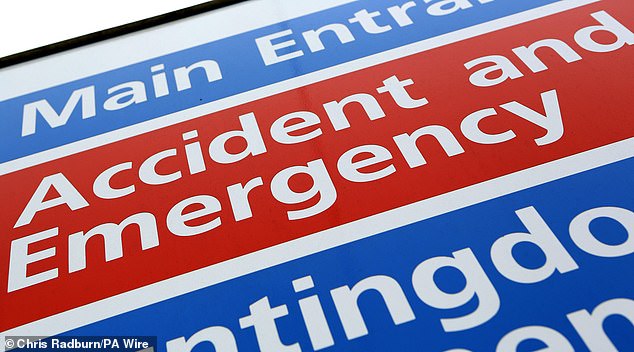
Many patients are giving up on trying to see their GP and are now going to the emergency room or self-medicating (file image)
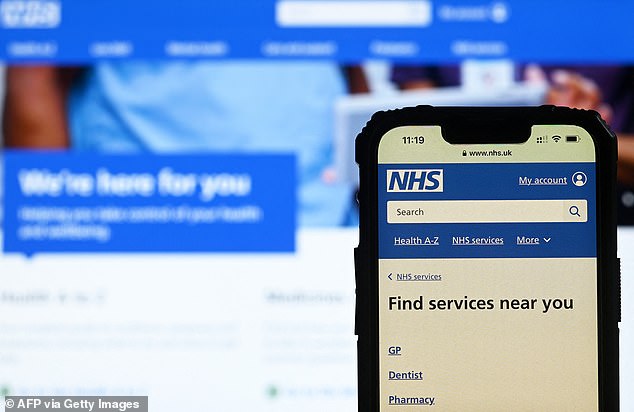
When they finally get through to a receptionist, 22 per cent have to fill out a form on their practice’s website and 16 per cent send a request via the NHS app (stock image)
Nearly a third of patients (31 percent) say they can only get an in-person appointment after speaking to their doctor on the phone, who will invite them if deemed necessary.
Almost one in five (19 per cent) say they have to see a non-GP staff member as part of a triage process.
Overall, 27 percent say they want their office to offer better quality of care and only 5 percent say there are no areas for improvement at their primary care physician office.
Dennis Reed, director of Silver Voices, which campaigns for the over-60s, said: ‘This research confirms what Silver Voices members have been telling us for many months.
‘There are many wonderful GPs who will take all the time needed, even if it means extending their hours.
‘However, an increasing number appear irritated and impatient if an older patient feels the need to explain their medical history to give it context and give the impression that they want them to leave as soon as possible.
‘The numerous barriers to accessing GPs and the revolving door policy that prevails in some practices make older people feel unwelcome in the practice.’
He added: “If the doctor is in too much of a hurry to make an appointment, there is a great danger that only the immediate and obvious symptoms will be treated.
‘If notes are not read carefully and the patient’s broader concerns are not listened to, it is easy to miss more serious underlying conditions.
‘Older patients continue to report that bureaucratic barriers to seeing a GP are being tightened, with complex online forms the order of the day.
‘There seems to be no appreciation that the app-driven world of younger patients is completely alien to a large portion of the population.
‘Older patients often leave their GP’s office and go to the emergency room or try to self-medicate.’
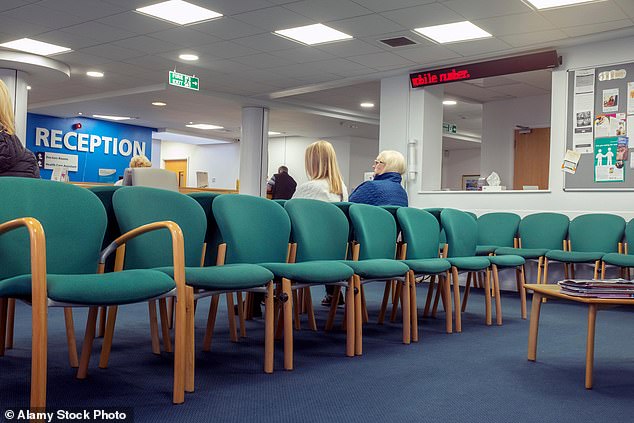
Older people find it harder to access a GP surgery because of “bureaucratic barriers” such as complex online forms (file image)
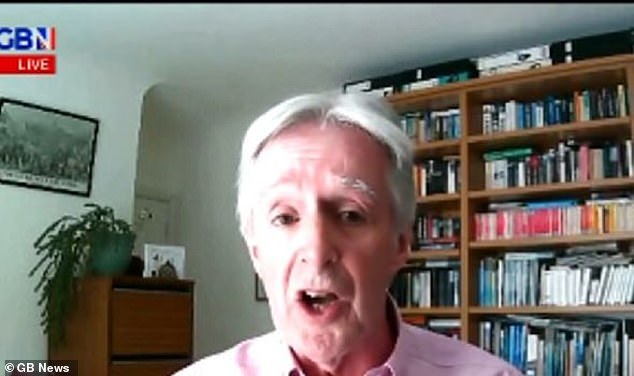
Dennis Reed (pictured in GB News), director of Silver Voices, which campaigns for the over-60s, said: “This research confirms what Silver Voices members have been telling us for many months.”
Rachel Power, chief executive of the Patients’ Association, said: ‘These latest Ipsos statistics show that simply accessing a GP surgery is a challenge for many patients.
‘This is not acceptable: people’s mental and physical health is at risk of deteriorating if they cannot receive support in a timely manner.
“Moreover, getting an appointment with your GP should not be some kind of test of persistence and digital skills.”
Professor Kamila Hawthorne, president of the Royal College of GPs, said GPs share many of the frustrations of their patients outlined in the survey.
He added: “This study closely matches a recent survey of our members which found that 60 per cent of GPs felt they did not have enough time to properly assess and treat patients.
‘We want to be able to treat our patients holistically and talk about all their health concerns, but with the current workload and work pressures facing GPs and our teams, we are struggling to give our patients the time they need and the time we want to spend with them.
‘Ensuring access to safe care is a priority for general medicine teams and we do not want any patient to feel discouraged by triage processes that practices may have in place.
“They must have set out with the best intentions.”
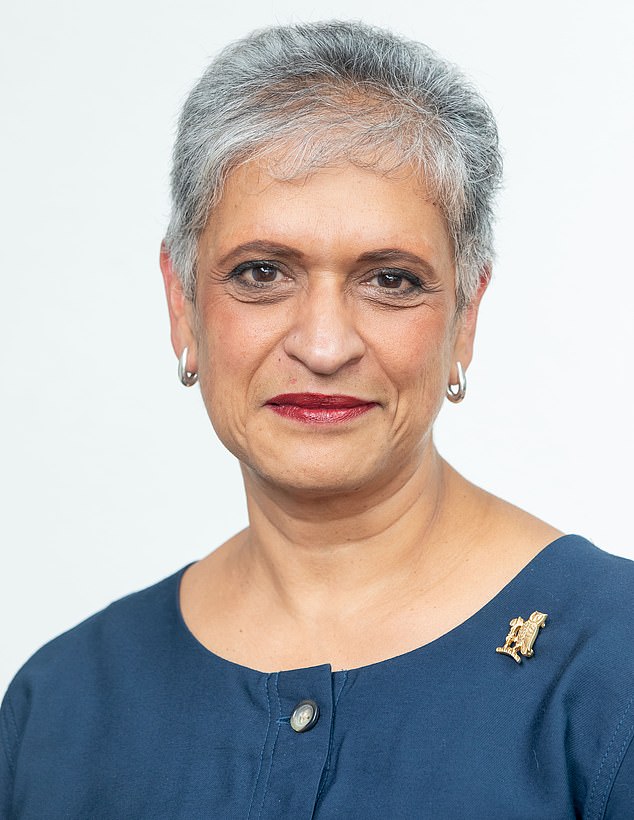
Professor Kamila Hawthorne (pictured), president of the Royal College of GPs, said GPs share many of the frustrations of their patients outlined in this survey.
Kate Duxbury, director of health and social care research at Ipsos UK, said: “We know the public recognises that GP practices are under pressure, and this new survey shows the impact on Britons.”
An NHS England spokesperson said: “GP teams are working incredibly hard to care for increasing numbers of patients and a recent survey found that nine in ten patients said their needs were met at their last appointment, but these findings make it clear that there is more to be done to improve patient satisfaction and experience of accessing primary care services.”


